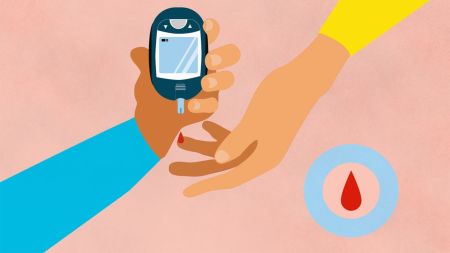Discover the surprising connection between carrots and cancer prevention. Rich in essential nutrients like vitamins K and A, carrots have been shown to reduce the risk of various cancers, including those of the mouth, throat, lung, stomach, and colon.
With less than 30 calories per serving, one carrot provides nearly 200% of the recommended daily vitamin A intake.
Include this cancer-fighting vegetable in your diet by juicing, boiling, roasting, or enjoying it in creative recipes. Start with this immunity-boosting Carrot Ginger Soup – simple, delicious, budget-friendly and healthy.
Expert opinion: These Diseases Can Be Cured By Eating Carrots
As an expert in nutrition and wellness, I have seen firsthand the positive effects of carrots on health. Adding these to your daily diet is a simple yet effective way to support your body's natural healing processes.
Carrots aren't just crunchy snacks; They are rich in nutrients that contribute to overall well-being. Let us learn about those diseases on which adding carrots to your diet can have a positive effect.
Benefits of Eating Carrots on Empty Stomach |
|
|
1 |
Promotes Eye Health |
|
2 |
Helps In Losing Weight |
|
3 |
Aids Digestion |
|
4 |
Fights Cholesterol |
|
5 |
Lowers Blood Pressure |
|
6 |
Promotes Skin Health |
|
7 |
Management of Inflammation |
|
8 |
Immune System Support |
Benefits of Eating Carrots on Empty Stomach
Consuming carrots on an empty stomach is a simple yet highly beneficial practice for your health. These vibrant orange vegetables are rich in dietary fiber as well as vital nutrients like vitamins A and K, making them an excellent choice to start your day off right. Carrots are famous for improving vision, promoting eye health, and eliminating vision problems due to their abundant beta-carotene content.
1 – Promotes Eye Health
Are you or your child suffering from vision loss? Carrots to the rescue! Carrots are considered a foolproof traditional remedy to improve eyesight. According to the book Healing Food, carrots are rich in lutein and lycopene, which help improve vision and night vision. Helps maintain vision. The high amount of vitamin A also contributes to healthy vision.
2 - Helps In Losing Weight
When you are on a weight loss diet, you should include high-fiber foods in your diet, and carrots, which contain both soluble and insoluble fiber, are the best. Dietary fiber takes the longest to digest. Because it helps you feel full and avoid eating other fatty foods.
3 – Maintains Bowel Regularity And Aids Digestion
The significant amount of fiber found in carrots plays an important role in maintaining digestive health. Fiber adds bulk to stools, helping them move smoothly through the digestive tract and preventing conditions like constipation.
4 – Fights Cholesterol And Promotes Heart Health
The high fiber content of carrots also promotes heart health by removing excess LDL cholesterol from the walls of your arteries and blood vessels. According to the book Healing Foods by DK Publishing, carrots "contain a type of calcium that is easily absorbed by the body and helps reduce unhealthy (LDL) cholesterol levels.
5 – Lowers Blood Pressure
Apart from reducing bad cholesterol, carrots are rich in potassium. Potassium helps relax blood vessels and arteries, improving blood flow and reducing high blood pressure. High blood pressure is linked to diseases such as atherosclerosis, stroke, and heart attacks. Therefore, take the first step towards a healthy heart by consuming more carrots.
6 – Promotes Skin Health
The juicy red wonder also helps to give the skin a radiant glow. In addition to beta-carotene, lutein and lycopene, the root's high silicon content promotes healthy skin and nails. You should eat it raw to get the most benefits from your diet.
7 – Management of Inflammation
The antioxidants present in carrots have anti-inflammatory properties, making them valuable in managing conditions related to inflammation. From arthritis to skin disorders, carrots can play a role in reducing symptoms.
8 – Immune System Support
Carrots, rich in vitamins and minerals, strengthen the immune system. They increase the production of white blood cells, providing natural protection against infections and diseases.
Common Questions About Carrot-Based Healing
1 - Are there any side effects to consuming too many carrots?
While carrots offer numerous health benefits, excessive consumption may lead to a condition called carotenemia, characterized by yellow-orange skin discoloration. Moderation is key.
2 - Can carrot consumption replace medical treatments?
Carrots can complement a healthy lifestyle but should not replace prescribed medical treatments. Consult with a healthcare professional for personalized advice.
3 - How many carrots should one eat daily for health benefits?
A moderate intake of one to two carrots per day is generally considered beneficial. However, individual needs may vary, and consulting a nutritionist is advisable.
4 - Can carrot juice provide the same benefits?
Carrot juice retains many nutrients found in whole carrots, offering similar benefits. However, whole carrots also provide valuable fiber that may be reduced in juice form.
5 - Are there specific carrot varieties with enhanced health benefits?
While all carrot varieties share fundamental nutritional benefits, deep-colored carrots, such as purple and red, may contain additional antioxidants.
6 - Can carrots prevent cancer?
While carrots contain antioxidants that may help reduce the risk of certain cancers, they should be part of a comprehensive anti-cancer diet. Consult with a healthcare professional for personalized advice.
Conclusion: Carrots Benefits
The healing power of carrots extends beyond a simple vegetable side dish. From enhancing vision to supporting heart health, carrots have earned their place as a nutritional powerhouse. Remember, while incorporating carrots into your diet is a positive step towards well-being, it's essential to maintain a balanced and varied approach to nutrition.







